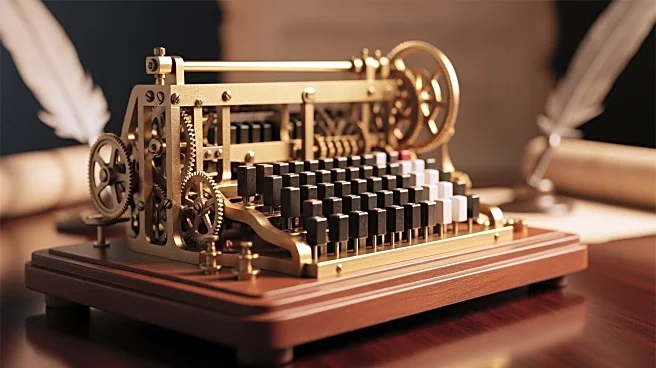What's Happening?
The sale of a rare 17th-century arithmetic machine, known as the Pascaline, has been halted by the Administrative Tribunal of Paris due to cultural heritage concerns. The machine, invented by Blaise Pascal,
was set to be auctioned by Christie’s on November 19. However, the court suspended the export license previously granted, following pressure from French cultural campaigners who argue that the Pascaline should remain in France as a National Treasure. The Pascaline, estimated to be worth between €2 million and €3 million, is considered a significant historical artifact due to its role in the development of mechanical calculators.
Why It's Important?
The decision to halt the sale of the Pascaline underscores the importance of preserving cultural heritage within national borders. The machine is not only a testament to France's historical contributions to science and technology but also represents a pivotal moment in the evolution of computing. By potentially classifying the Pascaline as a National Treasure, France aims to safeguard its cultural assets from leaving the country, ensuring that such artifacts remain accessible for educational and historical purposes. This move reflects broader efforts to protect national heritage in the face of globalization and commercial interests.
What's Next?
The future of the Pascaline remains uncertain as the court's decision is provisional, pending a final ruling. Christie’s has expressed confidence that the sale will proceed successfully once export issues are resolved. Meanwhile, French cultural campaigners continue to advocate for the machine's classification as a National Treasure, which would prevent its export. The outcome of this case could set a precedent for how cultural artifacts are handled in France, influencing future decisions regarding the export of historically significant items.










